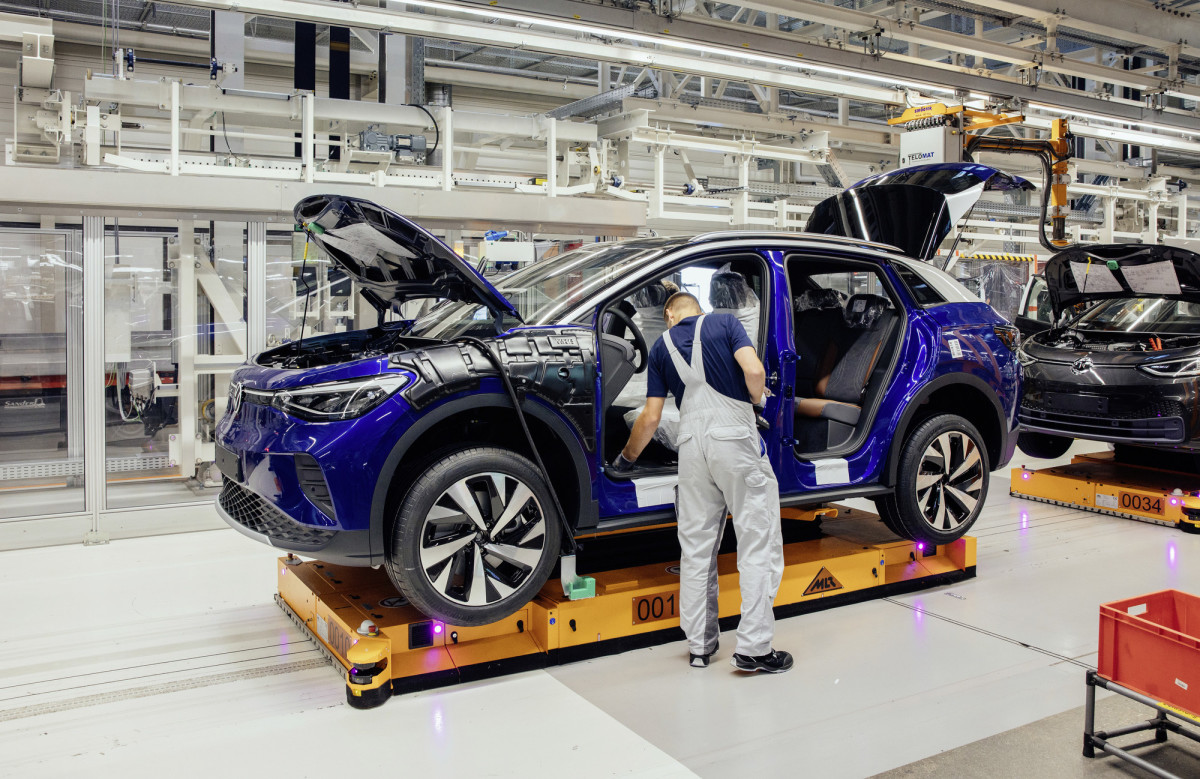Electric vehicle (EV) buyers proved to be a frugal bunch late last year, with sales of EVs from luxury automotive brands declining some 5% year-over-year in the fourth quarter of 2024, according to data from Kelley Blue Book. The trend is at odds with the broader automotive market, which saw sales of luxury cars and SUVs spike in the final months of 2024, driving up the average transaction price of a new vehicle to nearly $50,000.
Automakers are having a much better time selling electric vehicles in the mass-market segment, in which fourth-quarter EV sales grew 21%. According to KBB, EVs already cost nearly $6,000 more on average than ICE vehicles, making price-averse EV buyers even more likely to buy cheaper electric cars from brands like Chevrolet and Kia, both of which saw significant growth in EV sales last quarter.
Related: Biden admin finalizes ban on Chinese cars
Luxury EVs take a smaller slice of the pie
Even a holiday shopping bump couldn’t buoy sales of luxury EV brands like Audi, Mercedes-Benz, and Lexus in the final months of 2024. Overall sales of EVs from luxury brands came in at about 61,000 units in Q4, down nearly 5% from the same time period the year before.
View the original article to see embedded media.
Mercedes reported the largest sales decline of any automaker in the luxury EV segment, with sales down 68% to just 4,379 sales in the fourth quarter. The German automaker has announced plans to discontinue the EQS, its flagship electric vehicle. Mercedes CEO Ola Källenius told Autocar that an all-electric S-Class will fill the void left by the EQS’ departure.
Audi and BMW reported sales declines of 11% and 3.5%, respectively. Cadillac, meanwhile, emerged as an outlier in the luxury EV segment, reporting a 129% spike in sales last quarter thanks to its popular new LYRIQ SUV.

Cadillac
The popular table in the EV market
Virtually every mass-market automotive brand improved EV sales in the fourth quarter—up 21% across the group—but GMC, Chevrolet, and Kia led the pack. The continued popularity of the Hummer EV and the release of the new Sierra EV increased GMC’s EV sales by 220%, with 6,492 units sold. Granted, GMC may not be a luxury brand, but its EV offerings are far from economical, with the Hummer EV starting at $96,550 and the Sierra EV close behind at $89,900.
View the original article to see embedded media.
Other big gainers include Chevrolet and Kia, who reported increased sales of 110% and 80%, respectively. Volkswagen, meanwhile, ended a difficult year with the worst EV sales of any automaker, down 83% to just 1,808 EVs sold in the fourth quarter.

VW
Part of that decline can be attributed to a production halt and a stop-sale order issued by the company last September in response to faulty door handles on its all-electric ID.4 model. Still, full-year sales weren’t much better, down 52% from 2023. Production difficulties certainly didn’t help VW’s problems, but the automaker’s poor EV sales may simply come down to a lack of customer demand.
Related: First Jeep and Dodge EVs finally make it to dealers
Final thoughts
While luxury brands have traditionally leaned on their premium appeal to attract buyers, the high cost of EVs in this segment has proven to be a stumbling block, particularly as mass-market brands offer increasingly competitive options at lower price points. Cadillac’s success with the LYRIQ shows that there is still demand for luxury EVs—if the price and product resonate with consumers—but the broader decline suggests many buyers are steering toward practicality over prestige.
Related: Why do people keep crashing Ferrari F40s